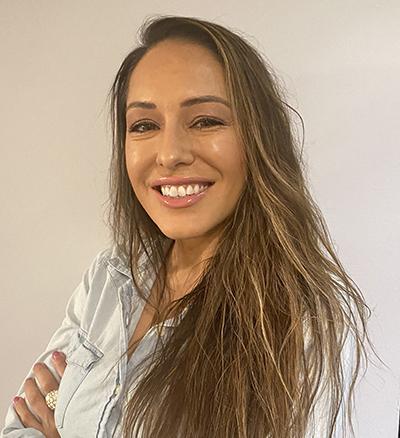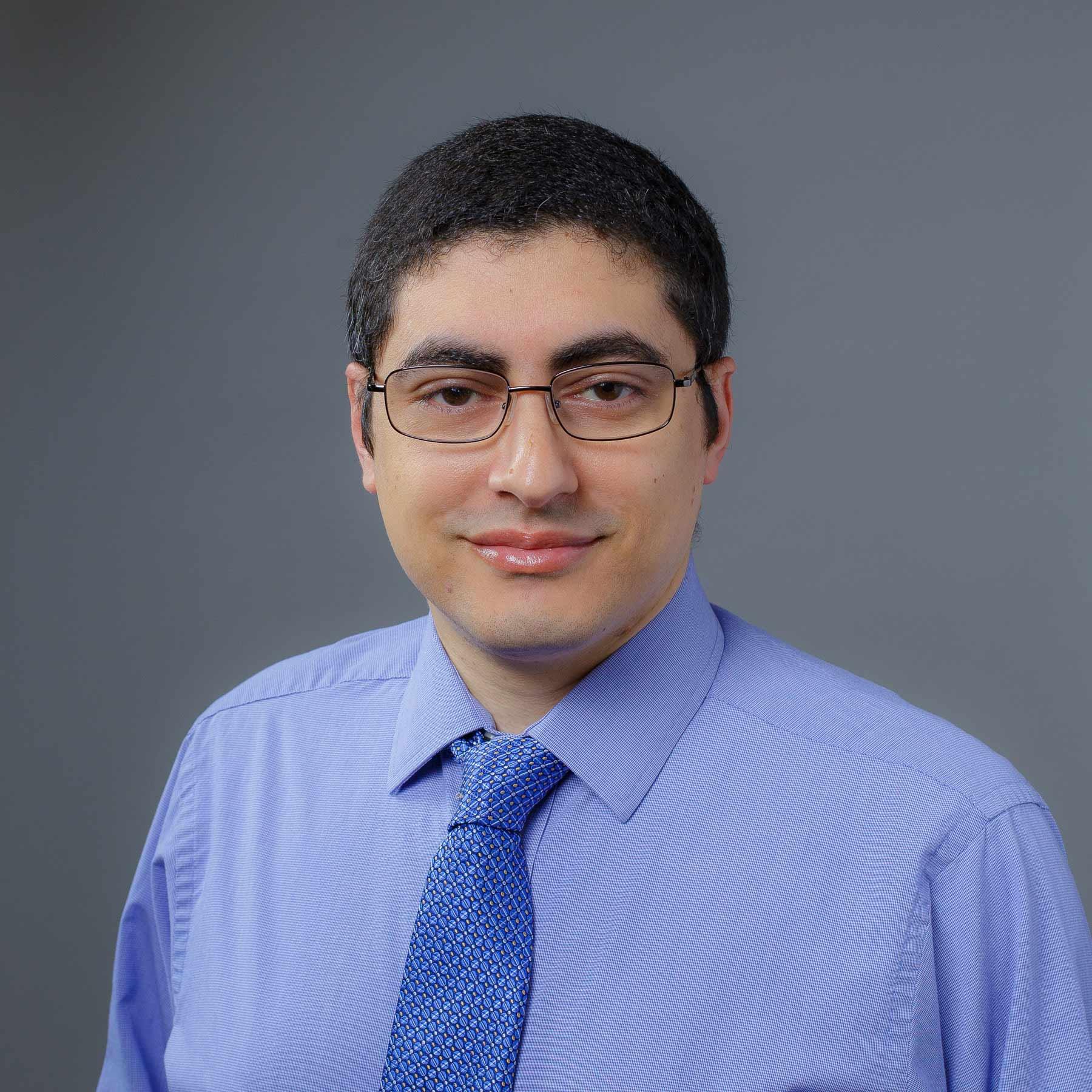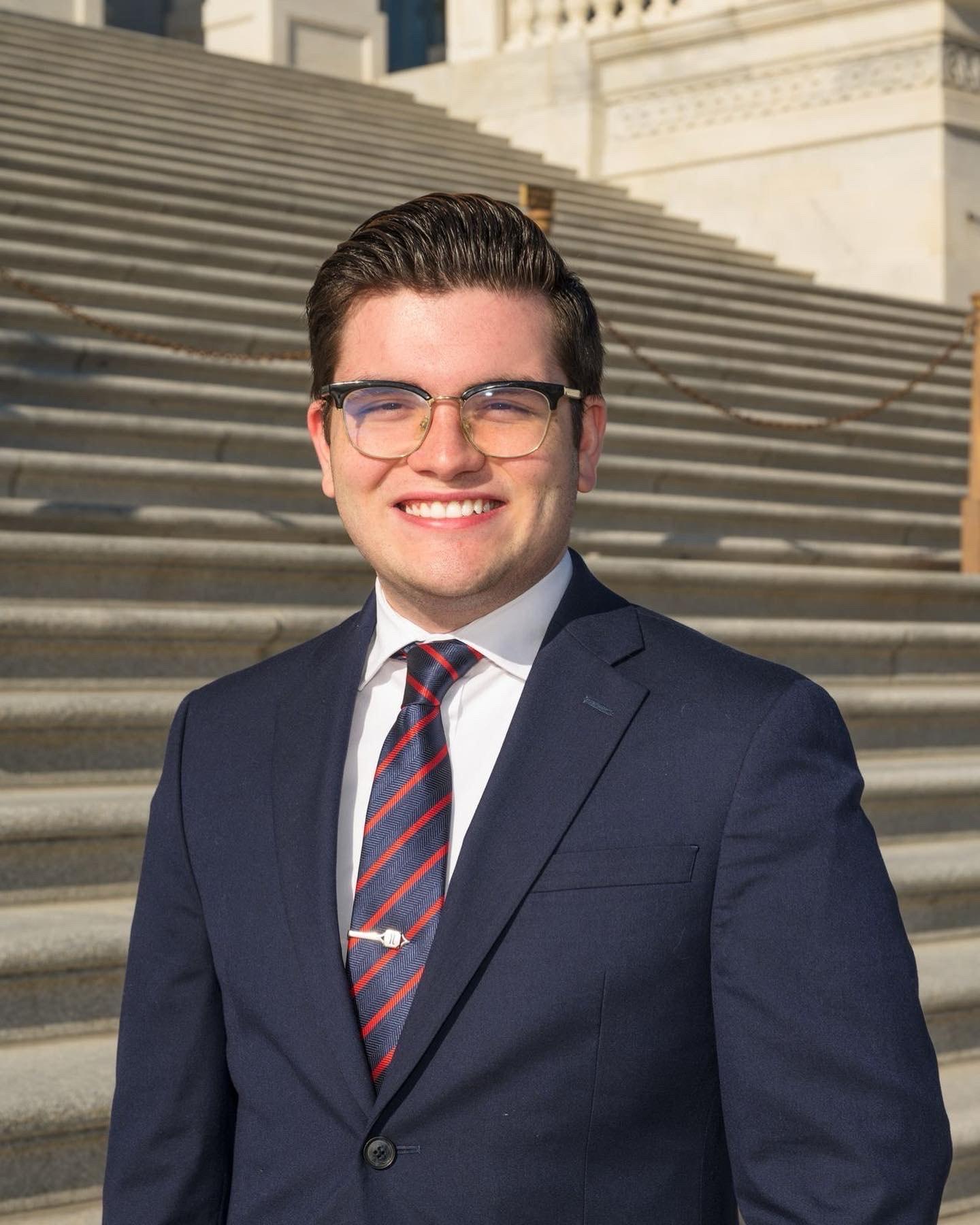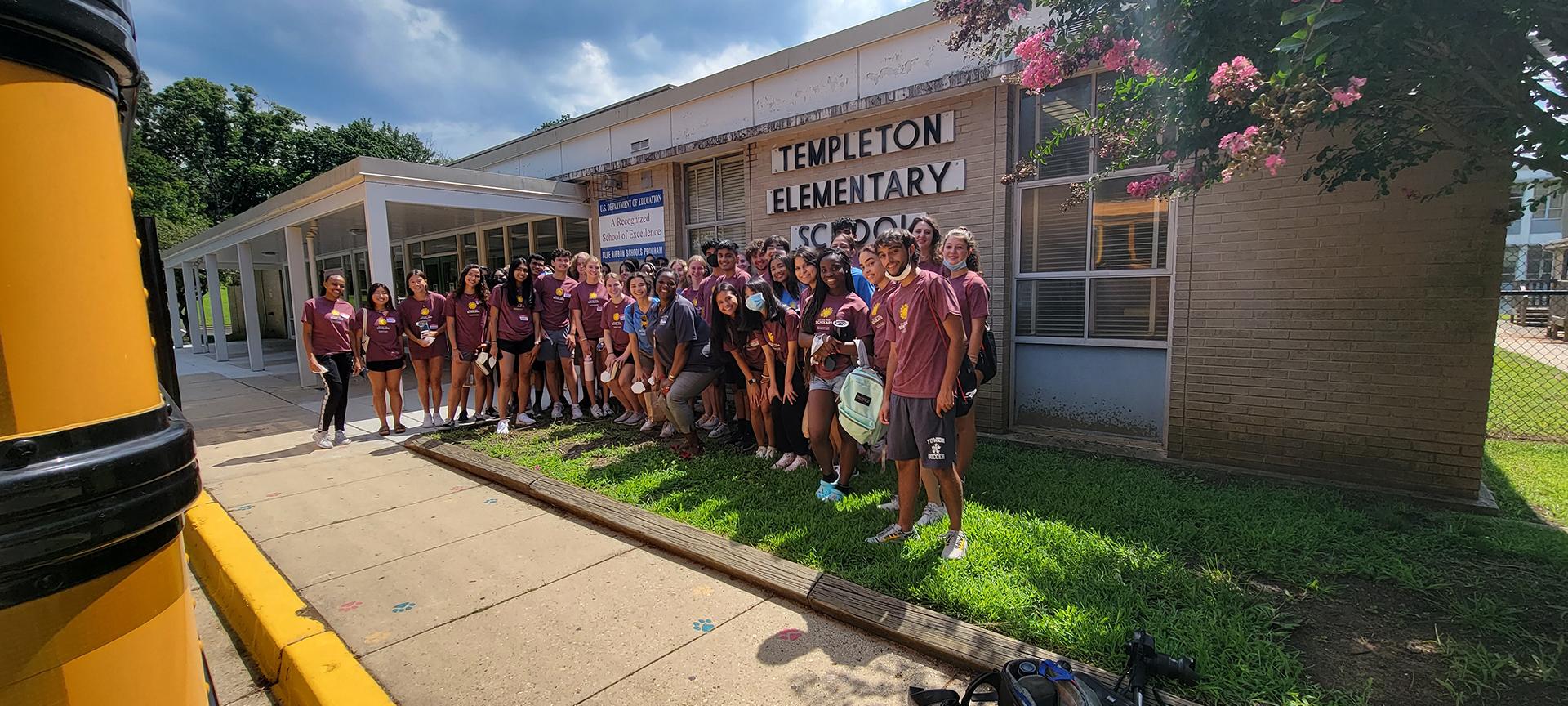International Studies
Investing in global citizenship for a more just world
Introduction
In our increasingly interconnected world, we no longer have the luxury of focusing only on our own country. What happens globally can affect us locally, while policies enacted locally can have implications for citizens halfway around the world. So how can we address the challenges of today’s world—from refugee displacement to gender inequality to rising authoritarianism—in a way that ensures a safe, sustainable and fair future for all?
International Studies (IS) explores global justice, including international development ethics, and the intricacies of how culture and society feed sociopolitical issues (and our understanding of them). Through discussions, in-class projects and guest speakers, students delve into the Sustainable Development Goals and learn what it means to be a citizen not just of one’s country but of the globe.
Students consider questions such as:
- What does a more just world look like and how can we get there?
- What does inclusive global citizenship mean for—and require of—communities, institutions and individuals?
- Can we justify extreme poverty amidst immense riches? Who is responsible for aiding the world’s poorest and most vulnerable?
IS offers an engaging and immersive opportunity for students who are interested in better understanding the world, including the forces that are shaping it. All majors and backgrounds are welcome. The program will be of particular interest to anyone interested in global justice, development ethics and human rights, but also international issues more broadly.
Colloquium and Lecture Topics
- Forced displacement (refugees and internally displaced persons)
- International development and human rights
- International Humanitarian Law and the “laws of war”
- Individual identity and intercultural dialogue
- Social action, diplomacy and the tools of change
I love International Studies because the topics we cover are ever-changing, relevant to current events and interdisciplinary. I find it amazing how we're able to cover and connect with many different topics like human geography, political science and public health!
Other Learning Opportunities
The IS experience is shaped in part through excursions and other active learning opportunities, both on and off campus. To broaden our understanding of what is covered in the classroom, we may visit embassies in Washington, DC, the Organization of American States, the Museum of the Americas, the Museum of the American Indian and our local Piscataway indigenous community, among others.
Students have walked Washington, DC’s, culturally diverse Heritage Trails to glean the international elements of the nation’s capital, participated in international negotiation simulations, presented on policy solutions to global challenges, and engaged in project-based learning in the classroom. Students also have the opportunity to engage in ongoing community-based learning by tutoring and mentoring refugees.
Curriculum Overview
Over the two-year program experience (four semesters), students will take a colloquium, practicum and select additional courses. Note that these Scholars courses are generally in addition to any courses students take to satisfy major requirements.
The following table represents a typical two-year curriculum, but individual schedules may vary. Details about courses and requirements can be found on the International Studies Citation Checklist.
| SEMESTER | COURSE | CREDITS |
|---|---|---|
| Freshman Fall | Scholars Colloquium | 1 credit |
| Academic Writing | 3 credits | |
| 3–4 courses toward degree and major requirements | 9–12 credits | |
| Freshman Spring | Scholars Colloquium | 1 credit |
| International Political Relations, or The Study of Political Philosophy | 3 credits | |
| 3–4 courses toward degree and major requirements | 9–12 credits | |
| Sophomore Fall | Scholars Colloquium | 1 credit |
| Supporting course | 3 credits | |
| 2–3 courses toward degree and major requirements | 6–9 credits | |
| Sophomore Spring | Scholars Practicum | 3 credits |
| 4–5 courses toward degree and major requirements | 12–15 credits |
Sponsoring College
Residence Hall
Cumberland Hall
Office Address
1119 Cumberland Hall
Office Phone
Faculty




Social Media Etc.
The Diamondback: First-ever Refugee Day creates community for refugees, May 2022
International Studies News
Five Scholars Named 2024 Do Good Challenge Semi-Finalists
The Do Good Institute recently announced the selection of the 2024 Do Good Challenge semi-finalists. These student-led teams will compete for the opportunity to advance to the Do Good Challenge Finals on April 30 where they will present in front of a panel of expert judges and an audience of hundreds and vie for a share of more than $20,000 in prizes.Five of the 14 semifinalists are College Park Scholars. Congratulations to Ethan Adler (MSS), Sara Blau (IS), Mohammed Ndiaye (GPH), Srivishnu Piratla (IS), and Takiyah Roberts (STS).
Five Scholars Community Members Named Provost's Do Good Innovator Award Recipients
In partnership with the Office of the Provost, the Innovator Awards highlight the incredible members of our campus community who create, nurture, expand and amplify social impact throughout education, programs and research, both inside and outside the classroom. These dedicated Terps were nominated by their colleagues who recognized the broad and meaningful impact they create. Over the past academic year, members from the Do Good Campus Strategic Leadership Council reviewed nominations and selected their awardees, with some units opting to fund additional awards. Congratulations to:
Two More Programs Added to Scholars for 2024-25
COLLEGE PARK, MD. – College Park Scholars in Fall 2024 will add two programs to its roster of two-year living-learning experiences for academically talented students, but one will look and sound familiar.Data Justice will debut, and the University of Maryland’s CIVICUS program will relaunch with a new name: Civic Engagement for Social Good.The expansion will bring the number of Scholars programs to a record of 13 and provide 150 additional first-year students with the opportunity to begin their college journeys as members of an intellectually rich and socially vibrant Scholars community.
Scholars Celebrates Citation and Founders Circle Award Winners at Annual Ceremony
When the Citation class of 2023 entered the University of Maryland, they were already adjusting to a rapidly changing world being constantly reshaped by the Covid-19 global pandemic. One thing that didn’t change – their commitment to excellence in the classroom. All who successfully completed the requirements of their respective Scholars program received their official Scholars citation. But there were some that went above and beyond the expectations, leaving a lasting impact on the community.
New Feller Research Professor to Advance Research on Activism by Marginalized Youths
Stacy Kosko, an Associate Research Professor in the Department of Government and Politics (GVPT) and the Director of the College Park Scholars International Studies program, has been named the next Joel J. Feller Research Professor—an award that has supported professional track faculty in GVPT since 2015.
Scholars recognizes Citation Class of 2022, Founders Circle Award winners
Students in College Park Scholars’s Citation Class of 2022 began their University of Maryland (UMD) careers in the fall of 2020, under the shadow of the COVID-19 pandemic. They spent their first year almost entirely online: Some Zoomed into their program colloquium from their double-turned-single dorm rooms; others attended virtually from their families’ homes, away from campus.
